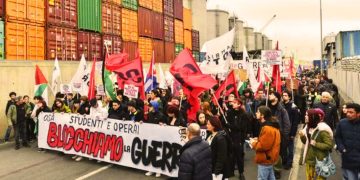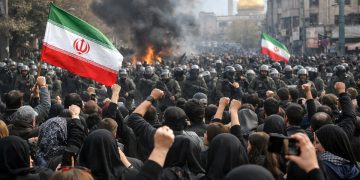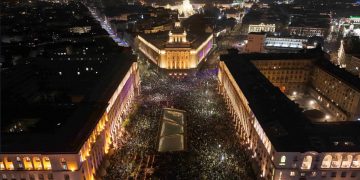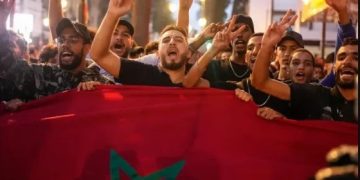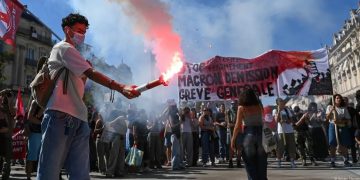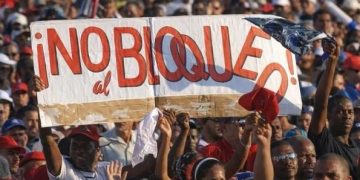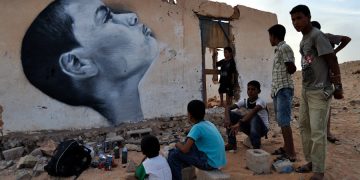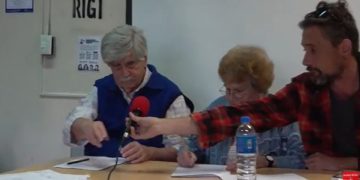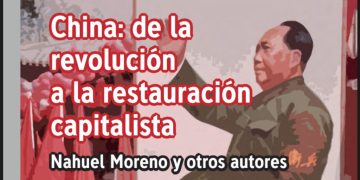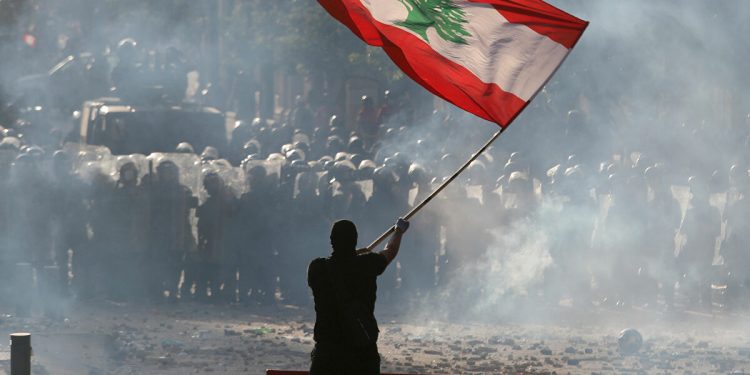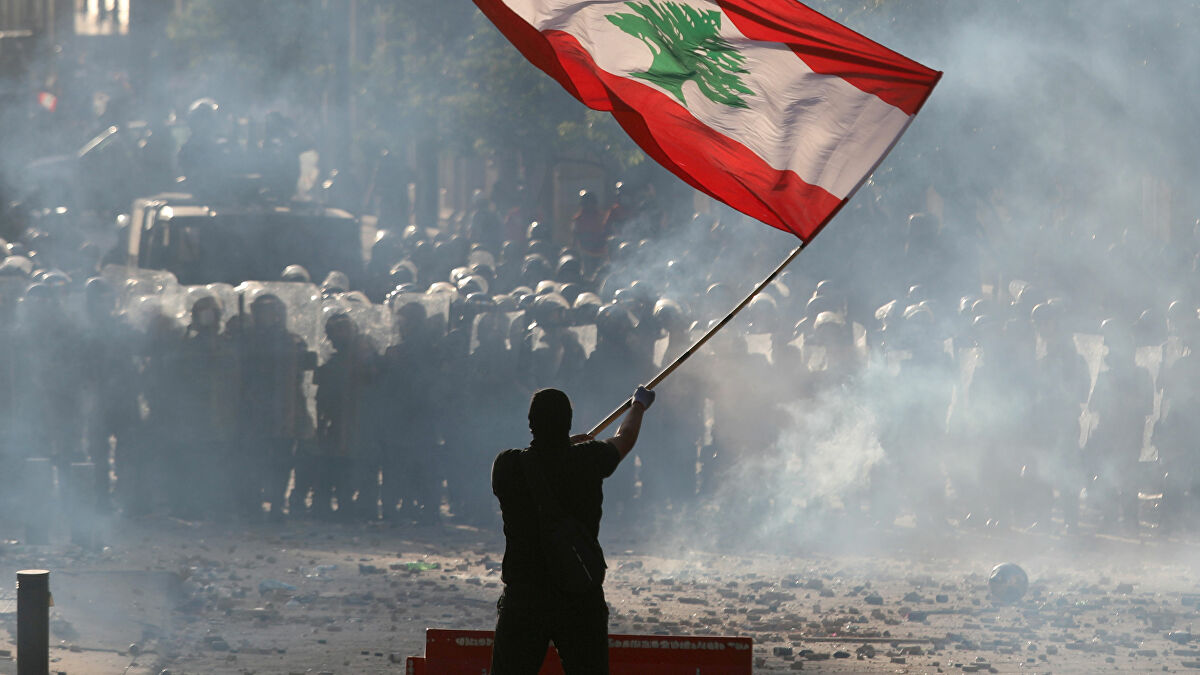 By Görkem Duru, an IWU-FI leader, Turkey
By Görkem Duru, an IWU-FI leader, Turkey
In Lebanon, which is experiencing the deepest economic crisis in its history, the massive explosion at the port of Beirut on August 4 unveiled the unbridled fury of the masses. The explosion of 2,750 tons of ammonium nitrate, which had been kept in a warehouse since 2013 in the most important port of the country caused 200 people to die, while leaving more than 5,000 people injured and nearly 300,000 Lebanese homeless. These figures revealing the scale of the destruction, when combined with the possible medium to long-term economic and social consequences of the explosion paints a perilous picture for Lebanese working people.
The government, on the one hand, promised that a commission would be formed in order to identify the culprits in an effort to prevent the anger directed towards itself in the aftermath of the explosion. On the other hand, it declared a state of emergency and tried to intimidate the masses by giving broad powers to the army in the streets of Beirut. However, in the eyes of the Lebanese working people, the responsibles for the explosion have been obvious and the masses refused to leave the streets, chanting “The people want the regime down.” On the sixth day of the protests, the government of Hasan Diyab had to resign after many of its ministers had already done so. That is to say, the current technocrat government with democratic reactionary tendencies, which took office on January 21, 2020 in the aftermath of the overthrow of the Saad Hariri government by the “October 17 Revolution” (the Hariri government resigned on October 29, 2019), was forced to leave its post once again after only six months under the pressure of the mass mobilization.
The masses achieved a significant gain by forcing the government to resign. However, as Diyab presented his resignation, he also announced that the country would go to early elections within two months: This means that the Lebanese capitalism that has been on the verge of decay, tried to hide behind the Diyab government in order to save itself and to keep the corrupt, degenerated and sectarian regime alive.
Degenerated regime, rotten capitalism
The explosion in the port of Beirut alone is a sufficient example to reveal the extent of corruption and decay of the state of affairs in the country. The fact that 2,750 tons of ammonium nitrate was kept at the port for more than six years, and that no steps were taken to transport them elsewhere despite various warnings is evidence that the sphere of responsibility is quite wide. And this responsibility cannot be reduced to the level of individuals alone, pretending it was about “negligence” or “incompetence” of this or that manager. What stand before us are the brutal, exploitative capitalist order that prioritizes profitability over human life as well as the Lebanese sectarian political leaders as a whole who represent the former. Such representatives are those who established a clientelistic, sectarian order in cooperation with imperialism and named it the so-called “Switzerland of the Middle East,” who cut the Lebanese people’s access to many public services through neoliberal policies and privatizations, who multiplied their profits through becoming shareholders of the banks in the country, and who restricted the workers’ access to their money in the banks during the economic crisis while trying to smuggle their own wealth abroad…
Since 2019, Lebanese workers have been struggling with a deep economic crisis. What started the revolutionary process in the country in October 2019 was the refusal of the masses to pay the cost of the crisis; they made an appearance on the stage with the desire to stand against the austerity policies. The crisis has deepened even further with the Covid-19 pandemic. When the country’s foreign debt reached up to $ 92 billion, corresponding to 170% of its GDP (Gross Domestic Product), the government announced its default in March. Banks restricted workers’ access to their own money in their bank accounts. The inflation rate rose up to 400%, destroying the purchasing power of the Lebanese people. Nearly 55% of the working-age population is currently unemployed, while about 60% of the total population live below the poverty line. While there are serious deficiencies in workers’ access to basic resources such as electricity and clean water, the crisis that has deepened with the pandemic caused the emergence of further difficulties in accessing other vital items such as wheat and medicine.
It is quite obvious that the explosion taking place in such an atmosphere will worsen the state of affairs in the country due to its economic and social consequences. The main port of Lebanon, which runs on an importation-based economic model as opposed to a production-based one, is now destroyed; other ports in the country are far from being able to carry the same level of commercial capacity, since the government has never made the necessary investments in them. Considering the already existing difficulties of access to basic necessities such as wheat and medicine before the explosion, the destruction of the wheat warehouse in Beirut port together with the heavy damage incurred in the two most important hospitals of Beirut as a result of the explosion will lead to a possible outbreak of food and health crisis in the country in the upcoming period in addition to the ongoing pandemic. What is more, these consequences are further complicated by the fact that more than 300 thousand Lebanese were left homeless and that a significant number of buildings in the city either collapsed or were severely damaged, revealing the weight of the burden of both the economic crisis and the regime’s failure to rule once again.
The state of affairs mentioned above is indicative of the capitalist debris that the country has become, due to the foreign-dependent and sectarian regime built in Lebanon in partnership with imperialism and Iran (Hezbollah) as a result of the Taif Agreement signed in 1989 in the aftermath of the civil war that took place in the country between 1975-90. The regime that aimed to render class conflicts invisible based on sectarian foundations in favor of capitalist exploitation made it such that the Shiite, Sunni or Christian sectarian leaders and politicians have become notorious capitalists, who kept adding wealth to their fortunes and whose names started to figure in the list of the top 100 richest of the country, resulting in the thinning the sectarian veil in the eyes of the workers over time.
The deep social and economic crisis that Lebanon is going through makes the imperialist capitalist vultures rub their hands together in satisfaction; they seek to guarantee their interests by keeping the regime alive despite mass mobilizations on the one hand, and they strive for increasing their profits by taking part in the reconstruction of Beirut via offering “economic and aid packages” to fix the collapse caused by the economic crisis and the explosion. In short, they seek to reinforce the country’s external dependence through indebtment. The French President Emmanuel Macron’s visit to the country the day after the explosion is textbook indicator of this plan.
The Lebanese masses were mobilized once again against Macron’s visit, knowing that any external “economic aid package” would be thrown back at them as an “economic austerity plan.” They amalgamated their rage against the destruction of the explosion with their anger against the economic collapse and the sectarian, clientelist, and corrupt regime.
“Prepare the gallows”
As was the case at the beginning of the revolutionary process that Lebanon has been going through, the masses once again revolted against the economic crisis and regime to push for their social and democratic demands: “The people want the regime down!” “All murderers out!”
Workers refused to leave the streets, despite the government’s entrustment of broad powers to the army through the declaration of a state of emergency to suppress the mass movement, and the harsh interference of the law enforcement agencies in the protests using tear gas as well as plastic and real bullets. The Lebanese workers gathered in Martyrs’ Square of Beirut on August 8, which was declared as the “day of anger.” They erected gallows and conducted ceremonial hangings of politicians and demanded that those who are responsible for the explosion and the economic collapse in the country, that is, the representatives of the sectarian regime, stand trial. The masses occupied the buildings of the Ministries of Energy, of Foreign Affairs, and of Economy as well as the headquarters of the Lebanese Banking Association and various banks.
The Diyab government that announced that a commission would be established to find out the responsibles for the explosion, also declared that the country would go for early elections in the face of the public pressure; yet this declaration fell short in convincing the Lebanese workers to withdraw from the streets. As demonstrations continued, Ministers of Finance, of Information, and of Environment and Justice resigned, in the aftermath of which the government of Hasan Diyab submitted his resignation as well following the declaration of snap elections in the next two months.
Following the resignation of the Saad Hariri government during the process of “October 17 Revolution,” Lebanese capitalists and sectarian leaders whose interests lie in guaranteeing the continuation of the current regime, had agreed to form a technocratic government led by Hasan Diyab. The main aim of these rulers was to put off the masses’ demands for economic and social transformation by absorbing some of these anti-regime demands through partial democratic arrangements within the system — for instance, the preparation of a more democratic electoral law — in order to ensure the continuity of the capitalist exploitation policies.
Even though the onset of the Covid-19 pandemic and the consequent withdrawal of the masses from the streets allowed the Diab government to save some time to keep going with this plan, the aggravation of the economic and social conditions with the pandemic paved the way for the re-mobilization of Lebanese workers in April. For the workers, who were aware of unemployment levels, inequalities in income distribution, and extent of corruption that the representatives of the sectarian regime were involved with, saw that what was happening was a deepening of the crisis instead of a resolution of their basic demands. Hence, they accelerated the revolutionary mobilization, which intensified due to the destruction caused by the explosion and brought the Diab government to an end.
However, Lebanese capitalists and sectarian leaders are trying to keep their regime alive in cooperation with imperialism once again by taking shelter behind the call for early elections. As they try to do so, the most fundamental factors that they rely on are the repression that they could exert on the masses using the state apparatus, the democratic reactionary appeals such as the “establishment of a national unity government” as well as, and perhaps most importantly, the sectarian divide that still exists in the country despite its erosion due to the capitalist exploitation policies.
Against the call for early elections, the most decisive factor in the struggle of the Lebanese working class in the direction of breaking with the regime and the capitalist exploitation policies is to plant and build the class unity of workers, women, youth, and the oppressed to stand against the sectarian differences that have constantly been mobilized by imperialism and the rulers of the country.
Let them all go: No to early election! For an independent, free and sovereign Constituent Assembly!
The basis for establishing such unity lies in the ability to continue with the mobilizations against all the maneuvers that imperialism and the Lebanese capitalists may resort to in order to preserve the regime, and to implement self-organizing bodies within the struggle. The mobilizations have been going on in a spontaneous way for the past 10 months and one cannot yet speak of the emergence of such bodies. In other words, the ongoing insurrection has been progressing without leadership, which points to a lack of the presence of an alternative that could lead to a break with the current regime despite the Lebanese workers’ determinant struggle against the economic and social collapse.
At this precise moment, it is more important than ever that the masses and Lebanese socialists establish self-organizing bodies and organize around an urgent action programme oriented towards a break with the regime and the capitalist order of exploitation. This, if accomplished, would be a major step forward in the course of the revolutionary process in favor of all the exploited and oppressed people.
Such a step forward could be aimed at fighting for the convening of elections to an independent Constituent Assembly. free and sovereign to counter the electoral manoeuvres used by the establishment to keep the regime alive. They are planning new elections within the framework of the old regime to follow the three bourgeois factions in power. The struggle for a sovereign Constituent would be the way to present an abrupt break with the sectarian, degenerated and corrupt regime, and with the Constitution that supports it; that would be, once and for all, «to get rid of them all».
Should the mobilisation of the Lebanese masses take a leap forward in which the demand for an independent, free and sovereign Constituent Assembly could discuss the whole reorganisation of the country. The Lebanese socialists should put forward in its fundamental measures in line with the axis of breaking with the imperialist and capitalist policy of exploitation. On the road to a workers government that could push for the cessation of foreign debt payments, the expropriation of the banks and all privatised public institutions without compensation and the establishment of a central and planned economy.
As the Covid-19 pandemic deepens the global economic crisis, we are going through times in which there is no description but the expression «socialism or catastrophe» that can appropriately refer to the state of our world. If the uprising of Lebanese workers could create an alternative to their regime and the capitalist system of exploitation in such a world conjuncture, they would set an important example for all the workers in the world. What we, the internationalist revolutionaries, should do is to support the ongoing struggle of the Lebanese masses politically and organisationally and developing ways to stand in solidarity with it.
August 17, 2020








